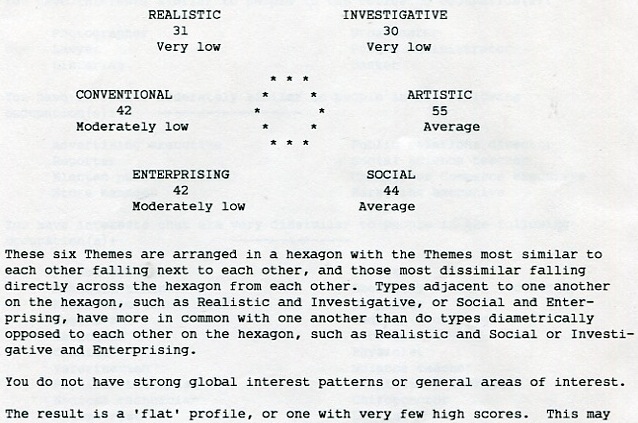Oh, hello, are you another member of the “I have always wanted an unusual piercing and/or a tattoo but I have anxieties and indecisiveness that have prevented this from becoming a reality even as the decades go by one after another” club? It is a pretty exclusive club, but we have good pastries.
Yesterday I finally broke through and got a cartilage piercing, and I thought you might like to know what that was like. Here were my anxieties beforehand:
1. Maybe it will hurt for a long time afterward
2. Maybe it will get infected
3. I’ve heard the piercing might make a gross pop or crunch sound
4. Maybe something will go wrong and my ear will be deformed for the rest of my life
5. I don’t even know how much something like this will cost
6. I can’t decide where to put the piercing, or how many to get
7. What if the location “means” something? (this covers anything from a vague memory about how it matters which ear a guy gets pierced, to hoping I don’t pick a location privately referred to among piercers as The Boring Middle-Aged Mom)
8. Feeling self-conscious about being perceived as trying too hard to be cool
9. The place on the mall that did my lobe piercings says I have to find a licensed tattoo/piercing parlor for this, and I feel very nervous about everything about that: how to find one, whether I’ll feel dumb going into such a cool place, whether that means it’s going to cost a lot more than I expect, what they’ll think of me, why I still care about things like that, etc.
10. It’s a semi-permanent or potentially permanent thing (like if something goes wrong), and that is a nervous thing
11. EVERYTHING ABOUT THIS IS UNFAMILIAR AND FULL OF CHOICES
12. Maybe I will regret it FOREVER
So! Yesterday I was feeling extremely cooped up in the house, so Rob and Elizabeth and I headed to the mall. I used to go to the mall ALL THE TIME when I had children in a stroller and I needed a place to walk around and kill time and buy things and eat lunch, all without having to fold up the stroller, but I haven’t been in literally years. For one thing, when the kids are no longer in a stroller, how do you carry all your STUFF? But the kids thought it was a keen idea, and I wanted to do something, ANYTHING, so off we went.
We had lunch in the food court, and that is just so excellent when I’m somewhere with more than one kid. We didn’t have to agree on a place and that was rad. After lunch we wandered around and found there really wasn’t anywhere any of us wanted to look. Oh, except Claire’s: Elizabeth and I both wanted to look at Claire’s. I wish I had a photo of my 6-foot teenage boy standing in Claire’s, surrounded by everything sparkly and fluffy and cute, looking pained as Elizabeth fairy-flew around saying “Oooooo look at this cute cat!!!” and “Ooooo owl earrings!!” and so forth.
I noticed that the piercing kiosk (not at Claire’s) that told me long ago they didn’t do cartilage piercings now had a big section of cartilage earrings and belly-button earrings, so I thought I would ask just in case they now did them. But no, they still do not, and also the clerk turned out to be one of those clerks who answers a question as if it’s the thousandth time a particular customer has asked her the question, rather than as if it is the very first time (or possibly second time for some of us, but YEARS apart) for each of a thousand customers. Eye roll, exasperated tone, defensive tone as if I had demanded to know why they didn’t rather than just asking if they did; she said the state only allows it to be done at licensed tattoo/piercing parlors.
Well. That was disappointing. I was pretty sure it would take me a good long time to investigate that option, or to follow through after I’d investigated—especially if I’d need to call ahead for an appointment instead of just walking in.
We continued through the mall. The kids were doing a fair amount of “Oh, I remember these gumball machines!!” and “Oh, I remember this tile pattern!!” and “The candy store is gone??” We were just to the part where we’d leave the mall and find our car, and I remembered we hadn’t yet found the rides. Elizabeth, age 11 and over 5 feet tall, was embarrassed to want to do one of the rides, but she DID want to do one, so we were going to do one. Also, that’s where the gumball/candy/toy machines were, and I was going to let them pick one thing each for old times’ sake.
As we walked round and round the gumball/candy/toy machines making our choices, I saw as if through a beam of heavenly light a sign placed in the entrance to a store: “State Licensed Piercing Parlor.” Whaaaaaaaaaaaaaaaaat. Why, if there was a state-licensed piercing parlor IN THIS VERY MALL, did the clerk at the piercing kiosk NOT MENTION THAT FACT?? Furthermore, the store looked like a cool-but-not-scary jewelry store, and the person on duty in the store was a friendly-looking girl: glasses, normal appearance, not too cool, a few tattoos and piercings but just enough to show she’d know what was what, not enough to make me feel out of my league.
I asked if they did cartilage piercings, and she said yes they did, and I said this was my first time here and (*gesturing at walls COVERED with RACK UPON RACK of earring choices*) could she point me to the earring choices for the piercing? She said those would be in the back room where the piercing would take place. I was a little cheesed not to get to look at the options ahead of time but WHATEVER, let’s DO this!
First she took my driver’s license and made a copy of it so that the copy appeared on a sheet of info for me to fill out. I had to give my name, address, and age, and I had to write my driver’s license number on a line right next to the photocopy of my driver’s license number. I had to answer a series of half a dozen or so questions: was I pregnant or nursing? was I over 18? was I currently under the influence of drugs or alcohol? did I currently harbor any contagious diseases? was I allergic to latex or metal? did I understand that this could go very wrong indeed and I would have no legal recourse? No, yes, no, no, no, yes.
Then there was a care sheet she went over with me. When I got my earlobe piercings done (as a child and later as a high school student), there was a different philosophy for after-care than there is now. I remember I was supposed to wash the piercings with rubbing alcohol multiple times a day, and also turn the earrings a LOT: the idea was to keep the piercing sterile (the rubbing alcohol), and keep the earring from sticking to the skin while healing (the turning). Now the idea is to LEAVE THEM ALONE. Just…LEAVE THEM ALONE, stop TOUCHING them, GAH! She asked did I want the $6.99 after-care liquid, and I know from when we had Elizabeth’s ears pierced that the $6.99 after-care liquid is nothing more than saline I could buy for a dollar at Target, but I ALSO know it avoids a lot of talk and warnings to just buy the $6.99 after-care liquid. (At other times of life, I have gone the other way, and have figured it is worth saving $5.99 (($6.99 less the dollar to buy saline at Target)) to endure a few moments of discomfort with a clerk. But at this moment, I was more RIDE THE MOMENTUM than SAVE THE DOLLARS.) Anyway, the care plan is to spray the piercing every 3-4 hours with the saline but don’t otherwise touch them or turn them or mess with them at all. It’s going to be hard for me to override the earlier training: the alcohol-and-turning made more sense to me, though this plan makes sense too.
She said that if the piercing DID get infected, I should under no circumstances take the earring out. That instead I should come back any time the store was open to see the guy who does the piercings, and he would treat/help/advise. She also said I should not change the earring for 6-9 months. MONTHS. Which ratcheted up my feelings of stress about choosing the earring.
She said I could bring one person back into the piercing room with me, but that neither of us could do anything with photos or videos or any sort of recording. (I did not want to bring anyone back with me.)
I imagine it varies considerably from location to location and from type of piercing to type of piercing, but at THIS place it was $30.00 for one single cartilage piercing, plus the $6.99 for the saline. Then I sat on a couch and waited to be called. At this point I gave Rob a couple of dollars and told him to take Elizabeth to the rides. And just as they walked away, a nice non-threatening-looking man came out and called me back to the piercing room. He did not have any visible tattoos or piercings of his own; his hair was short. He looked like a lab technician: medical and conservative. (Your own piercing technician may vary.)
It was a small room, like a smallish dentist/doctor room. There was a chair a bit like a dentist chair and covered in paper, and a big mirror on the wall, and a bunch of cabinets, and one of those metal-tray rolling side-tables. There were certificates on the wall, presumably testifying that the person about to alter my body was trained, licensed, and authorized to do so. The piercing guy asked what we were doing today, and glanced at my receipt to confirm it.
He handed me the card of earring choices, which blew my circuits right out: there were about three dozen choices, and he was clearly thinking I would just pick one real quick, when my actual m.o. would be to take about six weeks to weigh the options. There were three basic categories of choices: colored stones bezel-set in gold or silver; colored stones non-bezel-set in gold or silver; and metal studs in gold, silver, or a blackened silvery metal. The metal studs were about twice the size of the colored-stone options, and I wanted something smaller, but I could not choose a color. I liked too many of them, but none of them enough to be clearly the one I wanted. I just couldn’t figure it out. I panicked and chose gold, even though it was (1) too big, (2) a fake-looking gold, and (3) not as fun as a colored stone.
The piercing guy asked where I wanted it placed, and I didn’t exactly know, and I’ve found in situations like that it sometimes helps to clarify the strength of my opinion so that the professional knows to feel free to suggest changes to the plan. So I said I had been thinking of “this region?”—indicating the curve of my ear from twelve o’clock to…well, nine o’clock or three o’clock, depending on how we are overlaying the clock concept with the ear concept. Upper outer quadrant, is what I mean. I said I was not sure where specifically I wanted it, but…here-ish?—indicating more specifically the eleven o’clock / one o’clock location. But I added “whatever seems best.” He put some stuff on the ear, washing it and sterilizing it I assume, and then drew a mark. He said, “Without. Touching. Your ear. Look in this mirror and tell me if it’s right.” I looked, and he’d drawn the mark more at ten o’clock / two o’clock. (I regret the clock imagery, but we’re too far in at this point.) I was very aware that this was an EASY change at this point if I wanted it higher; I also wanted to defer to his professional opinion; I was also aware that his professional opinion might be at the shrug-who-cares end of the spectrum so I didn’t want to defer TOO much. I weighed these elements and decided I liked where he had put it. For one thing, eventually I am thinking I want three piercings in a little arc, and this would be a nice position for the lowest of the three.
He unwrapped some thingies I didn’t look too closely at (one of them looked like too big of a pokey thing for me to want to think about it) and mentioned that these were all one-time-use supplies and would be used for me only. He took an earring out of a wee little baggie. I said, “Brace me for how much this is going to hurt,” and he said, “Oh, I think you’ll be surprised!” Me, aware that he really would not say that if he meant it would hurt MORE than I’d expect, but unable to avoid the follow-up just to be sure: “… … …A lot?” Him: “No, no, I mean pleasantly surprised!”
He had me lie down on my side, with the ear in question facing up. I felt him messing with my ear a little, dabbing/arranging it. Then he said, “Okay, take a deep breath,” and I did, and I didn’t count the seconds but my perception afterward was that it was about three seconds of pain. The pain was of a fully-bearable nature for that time period: that is, I thought to myself “Oof, ack, ouch,” but then it was over. It seemed to me it was about one second’s worth of the pain of the actual piercing, followed by one second’s worth of it continuing to hurt, followed by one second’s worth of pain from him putting the earring into the hole he’d just pierced.
I know this will vary from person to person and from piercing to piercing, but in my case I didn’t hear or feel any kind of crunch or pop. When I had my earlobes pierced, I remembered being surprised that the pain sensation was more of a really strong hot squeezing pinch, rather than the sharp point of pain I expected; in this case, the pain sensation was less of a pinch and more of a sharp point.
He spent another 20 seconds or so fussing with the ear, cleaning it up. Then he let me sit up and had me look at it, and I approved it and thanked him, and that was it. It all took so little time that when I left the piercing room Rob and Elizabeth were only just walking back into the waiting area. The clerk said, “How did it go?” and I said “Great!” and she said, “Great! Call if you have any questions or concerns!” and I said “Okay, I will!” and I walked out of there feeling really wonderful. Like “I DID IT!! I REALLY DID IT!! IT REALLY HAPPENED AND IT’S REALLY OVER AND DONE!!” Mixed with a sort of astonishment at how quickly and easily the whole thing was done, after so many years of thinking about it and worrying about it. It was a pleasingly casual experience, and I felt extremely good about finally pulling it off.

I had immediate and enduring regret over the earring choice (it’s so big! it’s such a fake-looking gold! why didn’t I just choose the nice light green? or the aqua? or the clear? or really ANYTHING AT ALL EXCEPT THE GOLD??), but I am always in need of practice in not wasting time thinking about small, temporary, unimportant stuff, so I will accept this next installment of the lifelong lesson plan. This is the unsurprising-result math equation I encounter again and again: “person who has trouble making snap decisions” + “forced snap decision” = “nearly inevitable regret.” And when the issue is an earring choice rather than, say, a life-threatening crisis situation, it’s really, really okay. If I continue to be bothered by it, I also have the option of going back to the store and saying to the nice friendly clerk that I regret my earring choice and is there any way to throw money at the problem to fix it? Like, what if I purchase another piercing earring, and have the piercing guy change the earring for me? I could even pay the entire $30 fee over again for this. Or, OR, I could DEFY THEIR RULES and buy my own piercing earring at another location and change it myself! Or I can just be PATIENT, and then get whatever I want after the long unendurable torment of Not Quite The Earring I Wanted is over. I DO have options here.
Let’s see, what else? Oh, the pain situation. So, as we were leaving the piercing place, my ear didn’t hurt even a tiny bit, but it did feel quite hot. All the way home, it didn’t hurt. All afternoon: no pain, just heat. Then I tucked my hair behind my ear as I do many times a day, and my hand brushed lightly against the back of the earring, and OH JEHOSHAPHAT LET’S NOT DO THAT AGAIN. But it didn’t hurt as long as I didn’t touch it, and it didn’t hurt to put the saline spray on it. Still, I started worrying how I was going to sleep, since my usual is to flip back and forth from side to side all night.
And it was a bit difficult: I hadn’t realized just how much I rely on the flipping back and forth until I couldn’t do it. I woke up a lot, and felt sad to have to be on just one side, and was very grateful I hadn’t tried to do piercings on both sides in the same session. One time I woke up to find myself cheating: I was on the side I wasn’t supposed to sleep on, with the pillow folded under the behind-my-ear area so that the ear was pretty much free.
When I woke up in the morning, the ear didn’t hurt at all. Like, I was very carefully taking out my braid, and my hand nevertheless brushed against the earring, and it felt like nothing. I jostled it a few times on purpose, and still nothing: it felt like a piercing I’d had for years. But just now I was jostling it again for comparison, and then realized I was actually jostling the higher-up one of my lobe piercings and not my new cartilage piercing, so. Hard to say for sure about earlier today.
I took a shower very cautiously: the care sheet says to avoid harsh soaps and shampoos, and to rinse thoroughly. I was not sure where “rinse thoroughly” and “quit TOUCHING it!” should meet, but I did my best. Afterward, I was verrrrrry careful when turbaning, brushing, styling my hair; when I jostled the earring, it did hurt a little, but not like yesterday when it was a startling feeling. I would use a word such as TENDER, rather than a word such as HOLY HELL.
At this point it’s been nearly 24 hours since I had the piercing done. I just jostled the earring on purpose a few times, and I would say “tender” still applies. I feel inclined to leave it alone. I will update later about how things go over the next…6-9 months.
Update 1: Second morning report. The clerk told me not to sleep on the piercing, but I kept waking up sleeping on that side. It was apparently not tender enough to prevent me from doing so. When I got up, I saw what looked like a small amount of very dark dried blood between the earring and my ear. I was glad I was about to get in the shower anyway so I didn’t have to decide what to do about it. I put the shower on its gentler setting and repeatedly let the water run over the piercing as I was showering. When I got out of the shower, the piercing looked clean and fresh again. The piercing still feels tender if I jostle it or accidentally knock into it. Part of the discomfort is that the cartilage part of the ear is so rigid. My lobe piercings feel as if they’ve got quite a bit of wiggle room, but the cartilage piercing is sturdier, and so feels wronger if gets wiggled.
Update 2: On Day….let’s see. I got it done on a Wednesday, and I am going to talk about Sunday, so that would be Day 5. On Day 5, my ear felt more tender than before, and was the hot-pink color it was the day it was pierced, and was very slightly swollen: not super-puffy or anything, but I could tell because the earring seemed to be a tighter fit than before.
Update 3: Two-and-a-half weeks. I am back to sleeping almost normally on that side: every so often there is a little twinge, but I just readjust the pillow. I stopped using the multiple-times-a-day saline spray about a week ago; I use it just if the piercing feels itchy or irritated. After I’ve rinsed my hair in the shower, I pull my hair aside and rinse just the piercing, front and back, for awhile—like, 15 to 30 seconds, probably. I lightly touch the back of the earring as I’m rinsing the front, and lightly touch the front of the earring as I’m rinsing the back, to make sure I’m rinsing between the earring and the skin. My ear is not pink or swollen anymore. The piercing is still sensitive if I jostle it, but not oh-holy-hell—just a twinge that makes me disinclined to jostle it. I wish I’d updated about a week ago when the piercing area felt Quite Itchy, so I’d know when that was and how long it lasted, but I forgot. Well, it was about a week ago, and I think it lasted a couple of days. It wasn’t call-the-doctor itchy, but it was itchy enough that I thought, “I hope this is HEALING itchiness and not INFECTION itchiness.” There were no other symptoms besides pinkness (and the pinkness might have been because I kept furtively scratching my ear): no oozing or swelling whatever.
I’m feeling happier with the gold stud: it helped considerably when I replaced the smaller gold stud in my up-high lobe piercing, because now the two golds match in color. Also, as I got used to the cartilage piercing it just seemed much less noticeable over all. No one says, “OH! You got a new piercing!”—it’s not noticeable enough for that. It’s much less of a big deal than I’d thought it would be, and I mean that in the positive sense. I feel very happy about doing it, and a little silly for waiting so long.








